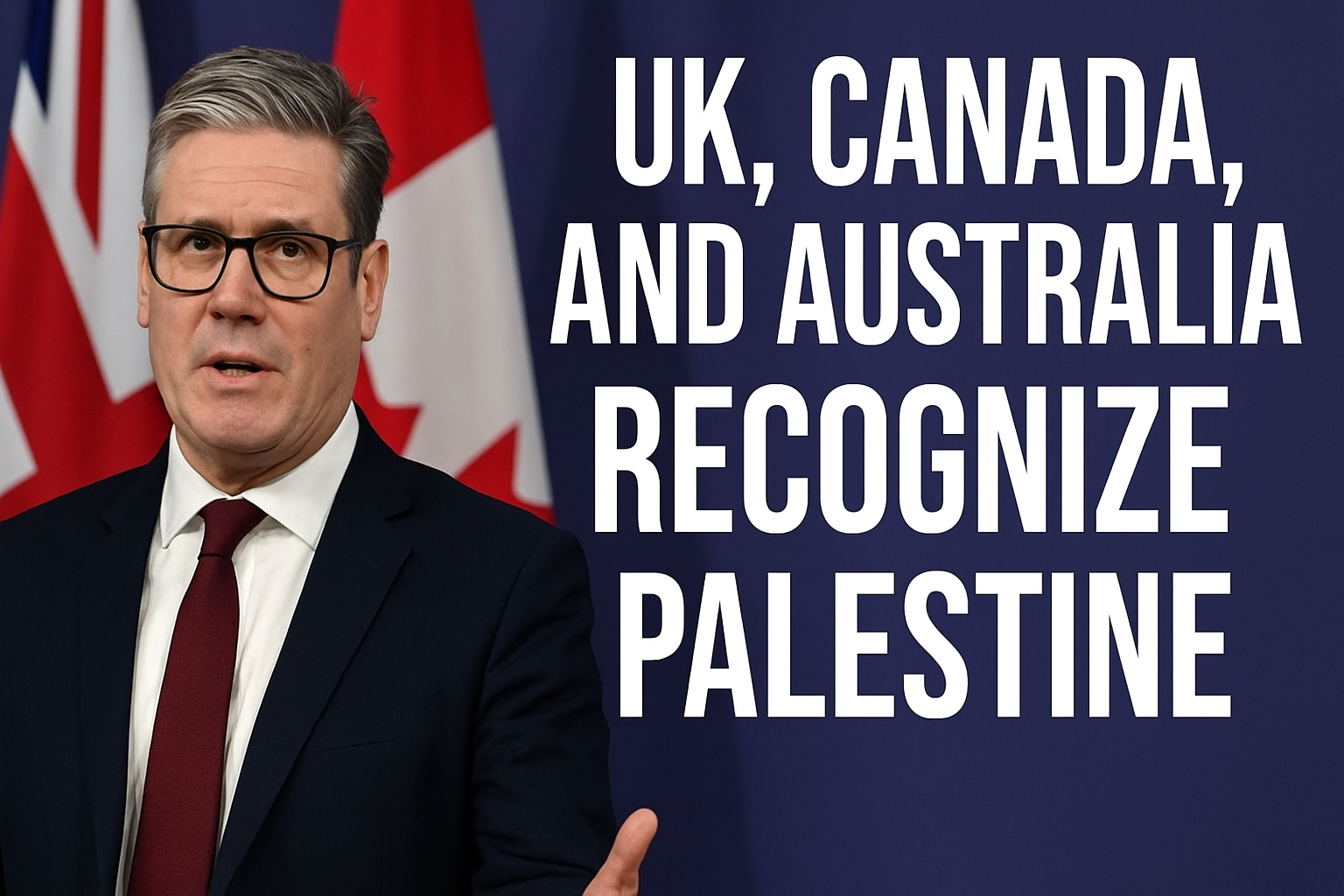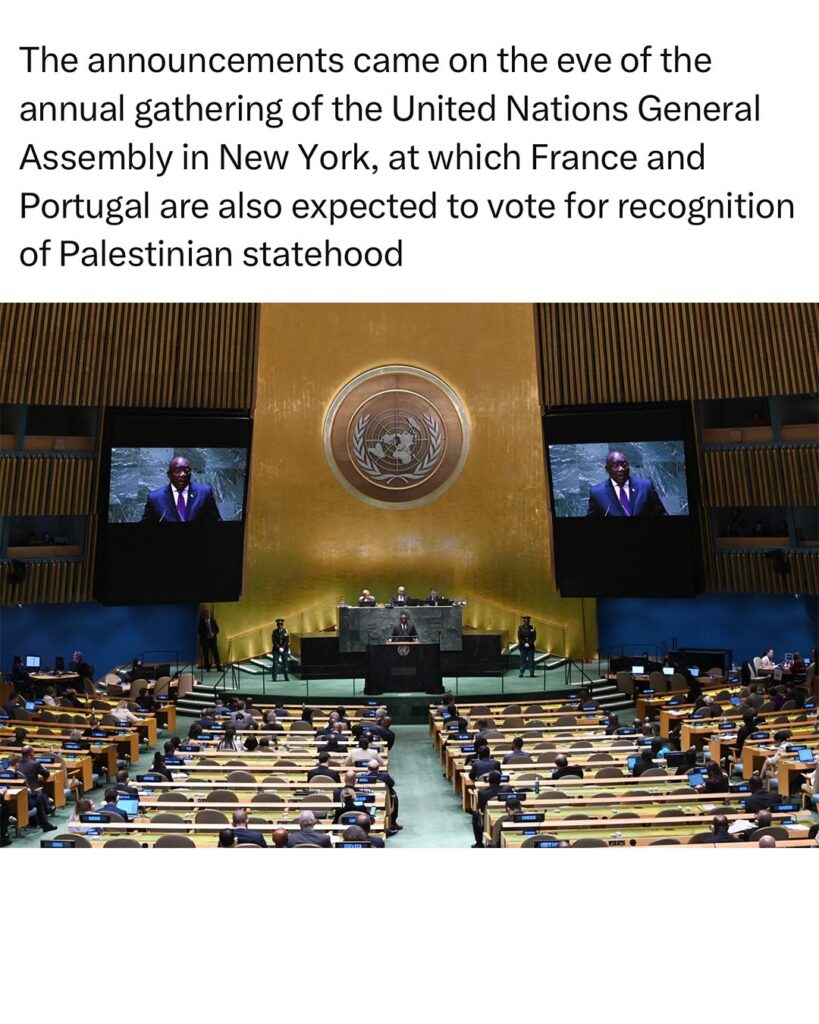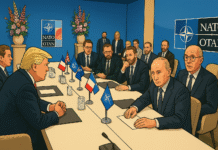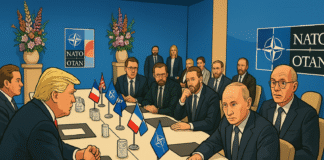
In a coordinated diplomatic move, the United Kingdom, Canada, and Australia have formally recognized the State of Palestine—becoming the first G7 nations to do so. The announcement, made just days before the UN General Assembly convenes, is widely seen as a significant moment in the decades-long Israeli-Palestinian conflict.
Israel Condemns, Palestinians Welcome
The Israeli government condemned the recognition, warning it sets a “dangerous precedent” that could embolden militant groups and undermine security.
Meanwhile, Palestinian Authority President Mahmoud Abbas hailed the decision as a milestone toward justice and statehood. Palestinian officials also confirmed that the recognition would lead to diplomatic upgrades, including elevating their mission in London to full embassy status.
Washington Hesitant, Europe Watching
The United States expressed unease with the coordinated announcement, maintaining that recognition should come only through direct negotiations.
Attention now turns to whether France and other European states will follow suit. Analysts suggest that momentum is building, with recognition numbers pushing toward 150 countries worldwide.

Historic Weight of Britain’s Role
The UK’s decision carries particular symbolism given its historical role in the Middle East—from the 1917 Balfour Declaration that paved the way for a Jewish homeland, to the 2014 UK Parliament vote that urged recognition of Palestine.
By acting alongside Canada and Australia, Britain is not only sending a political signal but also reshaping the diplomatic pressure heading into UNGA week.
Observers will be watching closely to see how Washington adjusts its stance, and whether this wave of recognition creates new momentum for peace talks—or deepens divisions in an already volatile region.


















